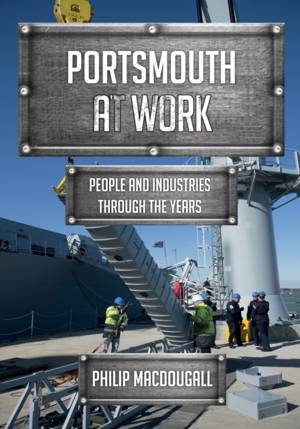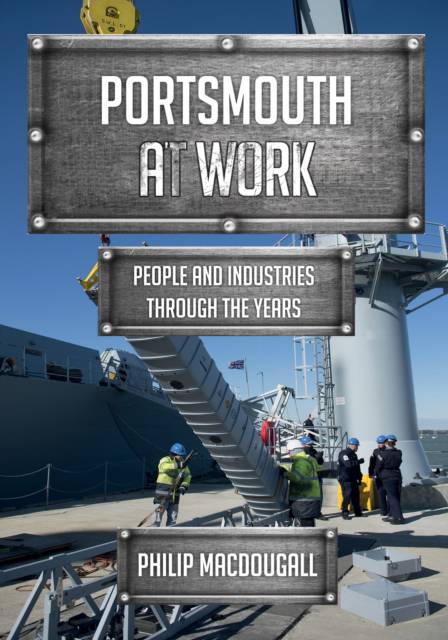
- Afhalen na 1 uur in een winkel met voorraad
- Gratis thuislevering in België vanaf € 30
- Ruim aanbod met 7 miljoen producten
- Afhalen na 1 uur in een winkel met voorraad
- Gratis thuislevering in België vanaf € 30
- Ruim aanbod met 7 miljoen producten
Zoeken
Omschrijving
Portsmouth is best known for its long-term association with the Royal Navy. Its naval dockyard was at one time the world's largest employer of a civilian workforce. While there can be no dispute that the Navy, for many centuries, totally dominated the town, it was not, by any means, the only employer. Others were active in the various service industries that met the needs of those employed in the dockyard or the navy: a large-scale tailoring industry, that initially began in the production of service uniforms, but rapidly expanded to meet more general needs far beyond that of Portsmouth; brewing, with Portsmouth boasting more pubs per head of population than any other city in the UK; and, of course, entertainment, as its many theaters, cinemas and music halls provided alternative diversions for a large population of off-duty sailors. Portsmouth At Work explores the life of Portsmouth and its people, from pre-industrial beginnings through to the present day. In a fascinating series of contemporary photographs and illustrations it takes us through the phenomenal growth of the naval dockyard and the city's role as a major sea port, the part it played in both world wars and subsequent conflicts, and into the 21st century as Portsmouth has adapted to the reduced size of the British navy with the development of other industries.
Specificaties
Betrokkenen
- Auteur(s):
- Uitgeverij:
Inhoud
- Aantal bladzijden:
- 96
- Taal:
- Engels
- Reeks:
Eigenschappen
- Productcode (EAN):
- 9781445679556
- Verschijningsdatum:
- 15/09/2018
- Uitvoering:
- Paperback
- Formaat:
- Trade paperback (VS)
- Afmetingen:
- 165 mm x 235 mm
- Gewicht:
- 279 g

Alleen bij Standaard Boekhandel
+ 41 punten op je klantenkaart van Standaard Boekhandel
Beoordelingen
We publiceren alleen reviews die voldoen aan de voorwaarden voor reviews. Bekijk onze voorwaarden voor reviews.







